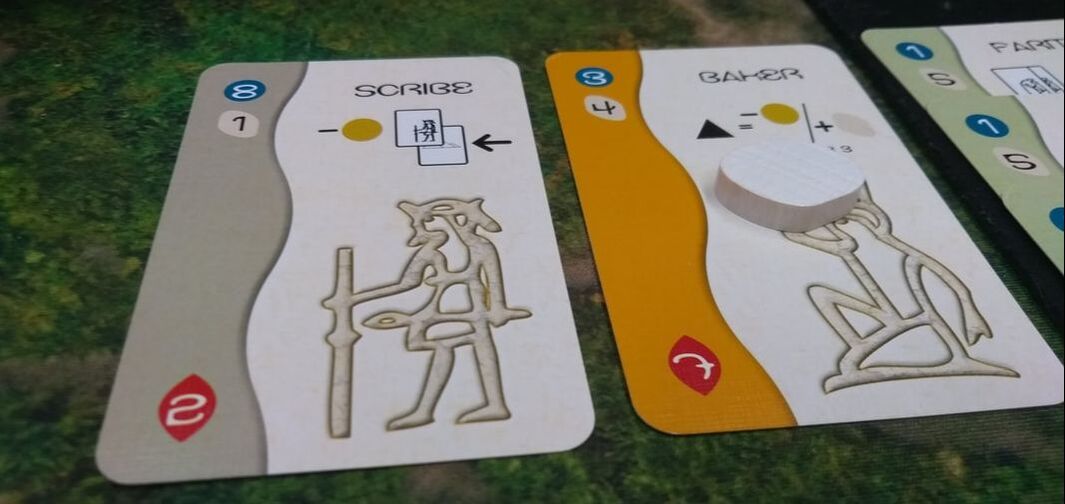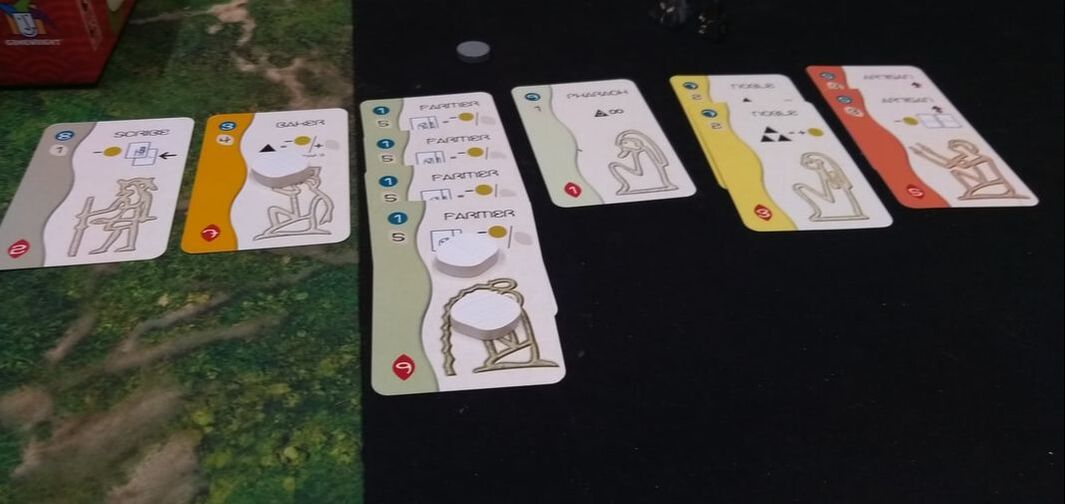|
5th October 2019 It's been a Saturday evening of gaming goodness at Matakishi's place. It's been an evening of small games. The fourth and final game of the night is 'Iunu', which is actually pronounced as er... 'uh wah nu'. Iunu is a card game set in the ancient time of the legendary Pharaohs of Egypt. With deserts and the Nile and the pyramids... or at least some four-sided dice. What's in a game? All the art on the cards is a clean and smooth almost minimalist style that is quite appealing. I guess it's also designed to resemble hieroglyphs? Components include:
How's it play? So we begin with setup.
There's no mention of afterlife cards, what do they do? Well when a 'priest' citizen card is played, the active player take a afterlife card and keeps it face-down in their area. Afterlife cards provide the opportunity to gain extra points during scoring. Players can only have 1 afterlife card each. If a player acquires more afterlife cards, they draw another one and keep one of the two. The other one is shuffled back into the afterlife deck. The dice Dice are rolled every round, what for? Certain citizen cards make use of these vaguely pyramid shaped dice. For example: The 'noble' card will earn the active player currency equal the result of all 3 dice (The dices' values are lowered after this.). The 'baker' citizen card can buy up to 3 bread tokens at a cost equal to the highest single dice. Bread tokens Talking of bakers, what do bread tokens do? After acquiring bread tokens, the are placed on citizen cards that have been played to increase their value in the endgame scoring. Additionally, bread tokens on your 'farmer' citizen cards will protect them from being 'enticed away' by pesky 'soldier' citizen cards. Endgame Once the citizen deck is depleted and all players have had an equal number of turns, we go into scoring. There are 5 ways to score:
Overall Iuni is a game with some interesting mechanics. Having to return 2 cards to the forum during every turn forces players into making some hard decisions, because not only are you discarding cards which may be useful, you're also giving other players the opportunity to take them. The dice are also an interesting idea and not something I've seen before in this style of game. The randomness can throw a real 'curve ball' into players' strategies. Once players have gotten their heads around the slightly unusual way the game works, it's quite quick to play and would be good as a filler or finisher game.
0 Comments
Leave a Reply. |
AuthorI play, I paint. Archives
March 2024
Categories
All
|



 RSS Feed
RSS Feed
